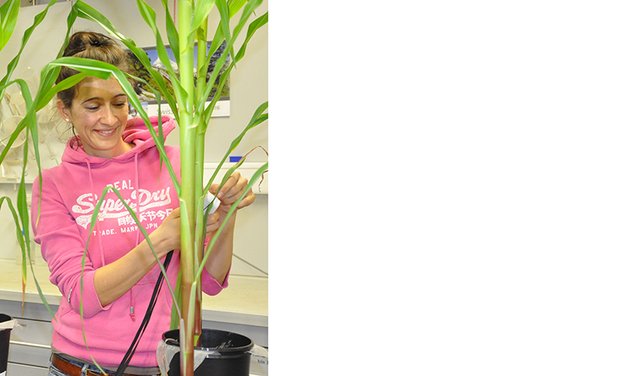Bio-Effectors (BE) are natural plant extracts, fungi and bacteria which find increased application in agriculture. Among other things, BE can increase availability of nutrients and/or can stimulate beneficial soil organisms such as arbuscular mycorrhizal fungi. In this study, the plant growth promoting potential of a bacterial BE and an algal BE was investigated under different fertilization scenarios. Moreover, it was tested whether the introduced bacteria are able to successfully establish in the community of naturally occurring soil organisms and whether the application of BE increases the plant’s uptake of phosphorus and impacts the abundances of different species of arbuscular mycorrhizal fungi, respectively.
The effect of both BE on growth performance of maize remained statistically insignificant. Other than expected their application did not increase P-content in plant tissue and further showed only minor impact on the investigated AMF species. The qPCR assay performed well and can be used to quantify different AMF species. The results of this work indicate that a deeper understanding of the underlying mechanisms is needed in order to successfully apply the investigated BE in agriculture. The methods applied in this thesis might be helpful in further investigations on this subject.
More about the BIOFECTOR project, in which her Master thesis was carried out:
http://www.biofector.info/biofector-projekt.html">http://www.biofector.info/biofector-projekt.html
___
Dominika Kundel conducted this work at the Forschungsinstitut für biologischen Landbau (FiBL) im Departement für Bodenwissenschaften in Kooperation mit der Arbeitsgruppe Pflanzenökologie von Professor Mark van Kleunen (Universität Konstanz) an.

